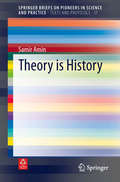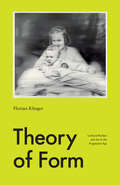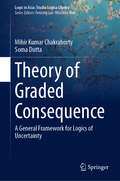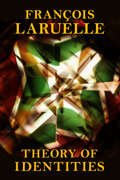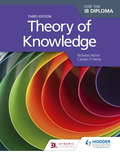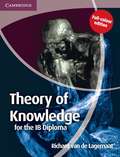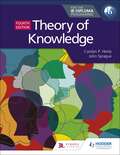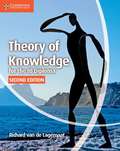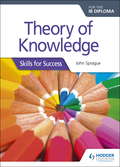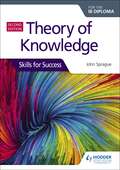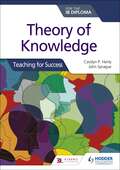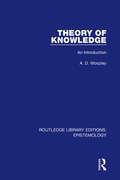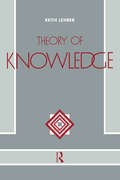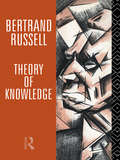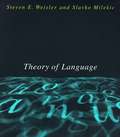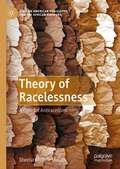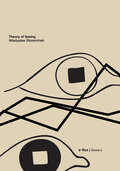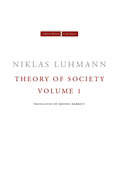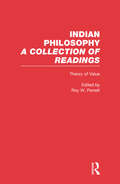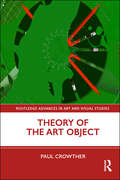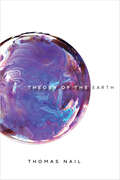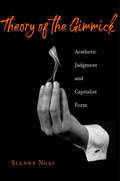- Table View
- List View
Theory is History
by Samir AminThis book focuses on a central concept that "Theory is History", as the theory of capitalism can only be formulated on the basis of an analysis of its history. In contrast, bourgeois thinking replaces the analysis of historical capitalism with an abstract theory without any links to reality. "Economics", which is the theory of an imaginary system, then becomes an apologia intended to give legitimacy to the behaviour of the owners of capital. The author pays special attention to the globalization of the law of value. The individual chapters illustrate the author's thesis by focusing on the links between capital and land ownership, between modernity and religious interpretation, and on questions of the global expansion of capitalism, particularly the ways it has evolved in certain countries, in this case Russia and China. This anthology supplements the author's previous work, centred on the rise of the South--his reading of capitalism focusing on its imperialist nature.
Theory of Form: Gerhard Richter and Art in the Pragmatist Age
by Florian KlingerA pragmatist conception of artistic form, through a study of the painter Gerhard Richter. In this study of the practice of contemporary painter Gerhard Richter, Florian Klinger proposes a fundamental change in the way we think about art today. In reaction to the exhaustion of the modernist-postmodernist paradigm’s negotiation of the “essence of art,” he takes Richter to pursue a pragmatist model that understands artistic form as action. Here form is no longer conceived according to what it says—as a vehicle of expression, representation, or realization of something other than itself—but strictly according to what it does. Through its doing, Klinger argues, artistic form is not only more real but also more shared than non-artistic reality, and thus enables interaction under conditions where it would otherwise not be possible. It is a human practice aimed at testing and transforming the limits of shared reality, urgently needed in situations where such reality breaks down or turns precarious. Drawing on pragmatist thought, philosophical aesthetics, and art history, Klinger’s account of Richter’s practice offers a highly distinctive conceptual alternative for contemporary art in general.
Theory of Graded Consequence: A General Framework for Logics of Uncertainty (Logic in Asia: Studia Logica Library)
by Soma Dutta Mihir Kumar ChakrabortyThis book introduces the theory of graded consequence (GCT) and its mathematical formulation. It also compares the notion of graded consequence with other notions of consequence in fuzzy logics, and discusses possible applications of the theory in approximate reasoning and decision-support systems. One of the main points where this book emphasizes on is that GCT maintains the distinction between the three different levels of languages of a logic, namely object language, metalanguage and metametalanguage, and thus avoids the problem of violation of the principle of use and mention; it also shows, gathering evidences from existing fuzzy logics, that the problem of category mistake may arise as a result of not maintaining distinction between levels.
Theory of Identities
by François LaruelleFrançois Laruelle proposes a theory of identity rooted in scientific notions of symmetry and chaos, emancipating thought from the philosophical paradigm of Being and reconnecting it with the real world. Unlike most contemporary philosophers, Laruelle does not believe language, history, and the world shape identity but that identity determines our relation to these phenomena. Both critical and constructivist, Theory of Identities finds fault with contemporary philosophy's reductive relation to science and its attachment to notions of singularity, difference, and multiplicity, which extends this crude approach. Laruelle's new theory of science, its objects, and philosophy, introduces an original vocabulary to elaborate the concepts of determination, fractality, and artificial philosophy, among other ideas, grounded in an understanding of the renewal of identity. Laruelle's work repairs the rift between philosophical and scientific inquiry and rehabilitates the concept of identity that continental philosophers have widely criticized. His argument positions him clearly against Deleuze, Badiou, the new materialists, and other thinkers who stray too far from empirical approaches that might revitalize philosophy's practical applications.
Theory of Knowledge Third Edition
by Nicholas Alchin Carolyn HenlyA unique narrative through the latest TOK guide from two of the IB's most respected experts- Guides students by helping them examine the nature of knowledge and ways of knowing- Develops diverse and balanced arguments by raising questions in a variety of contexts- Provides complete support assessment- Includes all the new ways of knowing and areas of knowledgeAlso availableThis Student's Book is supported by Dynamic Learning, which offers Teaching and Learning Resources that include a guide to teaching the course and classroom activities, plus a unique lesson builder tool to help teachers collate and organise a range of resources into lessons. The Dynamic Learning package also includes a Whiteboard eTextbook version of the book for front of class teaching and lesson planning.Also from later in the year, please look out for assignable and downloadable Student eTextbooks
Theory of Knowledge for the IB Diploma
by Richard Van de LagemaatThis book is designed to be used with the Theory of Knowledge course in the International Baccalaureate Diploma Programme. (It is, however, not an official guide to the IB Theory of Knowledge syllabus and is not connected with the IBO in any way.) The book may also be useful for students following other critical thinking courses.
Theory of Knowledge for the IB Diploma Fourth Edition
by John Sprague Carolyn P. HenlyDeveloped in cooperation with the International Baccalaureate (IB)Build knowledge with this thought-provoking guide through the core theme, the five optional themes and the five areas of knowledge.- Guide students by helping them examine the nature of knowledge and their own status as a knower.- Develop diverse and balanced arguments with a variety of activities, case studies and Deeper Thinking features.- Aid understanding with in-depth discussions of the twelve course concepts and detailed definitions of all key terms.- Provide assessment support with guidance relating to the TOK Exhibition and Essay.Free online material available at hoddereducation.com/ib-extrasAlso available:Theory of Knowledge Student eTextbook 9781510475458Theory of Knowledge Whiteboard eTextbook 9781510475441Theory of Knowledge: Teaching for Success 9781510474659Theory of Knowledge: Skills for Success 9781510474956Theory of Knowledge: Skills for Success Student eTextbook 9781510475472
Theory of Knowledge for the IB Diploma Fourth Edition
by John Sprague Carolyn P. HenlyDeveloped in cooperation with the International Baccalaureate (IB)Build knowledge with this thought-provoking guide through the core theme, the five optional themes and the five areas of knowledge.- Guide students by helping them examine the nature of knowledge and their own status as a knower.- Develop diverse and balanced arguments with a variety of activities, case studies and Deeper Thinking features.- Aid understanding with in-depth discussions of the twelve course concepts and detailed definitions of all key terms.- Provide assessment support with guidance relating to the TOK Exhibition and Essay.Free online material available at hoddereducation.com/ib-extrasAlso available:Theory of Knowledge Student eTextbook 9781510475458Theory of Knowledge Whiteboard eTextbook 9781510475441Theory of Knowledge: Teaching for Success 9781510474659Theory of Knowledge: Skills for Success 9781510474956Theory of Knowledge: Skills for Success Student eTextbook 9781510475472
Theory of Knowledge for the IB Diploma Second Edition
by Richard Van de LagemaatWritten by experienced practitioners this resource for Theory of Knowledge for the IB Diploma offers comprehensive coverage of and support for the new subject guide. This edition of Theory of Knowledge for the IB Diploma is fully revised for first examination in September 2015. The coursebook is a comprehensive, original and accessible approach to Theory of Knowledge, which covers all aspects of the revised subject guide. A fresh design ensures the content is accessible and user friendly and there is detailed guidance on how to approach the TOK essay and presentation. This edition supports the stronger emphasis on the distinction between personal and shared knowledge and the new areas of knowledge: religion and indigenous knowledge.
Theory of Knowledge for the IB Diploma: Skills for Success
by John SpragueBuild confidence in a range of key Theory of Knowledge skills with this practical companion, full of advice and guidance from an experienced TOK expert.· Build confidence in applying analytical skills with Deeper Analysis, showing you how to go beyond simply identifying and explaining· Develop awareness of the practical application of knowledge with In Practice pointers, offering guidance on how topics can be used in TOK activities· Improve skills for formulating genuine knowledge questions for use in activities, a crucial part of assessment success· Avoid making the mistakes that others make in the assessment with TOK Traps that highlight common errors and misconceptions.
Theory of Knowledge for the IB Diploma: Skills for Success
by John SpragueBuild confidence in a range of key Theory of Knowledge skills with this practical companion, full of advice and guidance from an experienced TOK expert.- Learn to apply analytical skills with Deeper Thinking, showing you how to go beyond simply identifying and explaining.- Develop awareness of the practical application of knowledge with In Practice pointers, offering guidance on how topics can be used in TOK activities.- Improve your ability to respond to knowledge questions, a crucial part of assessment success.- Avoid making the mistakes that others make in the assessments with TOK Traps that highlight common errors and misconceptions.Also available:Theory of Knowledge for the IB Diploma 9781510474314Theory of Knowledge Student eTextbook 9781510475458Theory of Knowledge Whiteboard eTextbook 9781510475441Theory of Knowledge: Teaching for Success 9781510474659Theory of Knowledge: Skills for Success Student eTextbook 9781510475472
Theory of Knowledge for the IB Diploma: Skills for Success
by John SpragueBuild confidence in a range of key Theory of Knowledge skills with this practical companion, full of advice and guidance from an experienced TOK expert.- Learn to apply analytical skills with Deeper Thinking, showing you how to go beyond simply identifying and explaining.- Develop awareness of the practical application of knowledge with In Practice pointers, offering guidance on how topics can be used in TOK activities.- Improve your ability to respond to knowledge questions, a crucial part of assessment success.- Avoid making the mistakes that others make in the assessments with TOK Traps that highlight common errors and misconceptions.Also available:Theory of Knowledge for the IB Diploma 9781510474314Theory of Knowledge Student eTextbook 9781510475458Theory of Knowledge Whiteboard eTextbook 9781510475441Theory of Knowledge: Teaching for Success 9781510474659Theory of Knowledge: Skills for Success Student eTextbook 9781510475472
Theory of Knowledge for the IB Diploma: Teaching for Success
by John Sprague Carolyn P. HenlyConfidently navigate the new syllabus with a variety of teaching resources to help you plan engaging lessons that are directly aligned with the Student Book.- Confidently teach the new course with a clear overview of the TOK course and your responsibilities as a TOK teacher.- Ensure full coverage of the syllabus with specific guidance relating to the core theme, the optional themes and the areas of knowledge.- Easily navigate the new course with lesson plans, activities and extension material.- Help guide students through the assessment process with advice relating to the exhibition and essay.
Theory of Knowledge for the IB Diploma: Teaching for Success
by John Sprague Carolyn P. HenlyConfidently navigate the new syllabus with a variety of teaching resources to help you plan engaging lessons that are directly aligned with the Student Book.- Confidently teach the new course with a clear overview of the TOK course and your responsibilities as a TOK teacher.- Ensure full coverage of the syllabus with specific guidance relating to the core theme, the optional themes and the areas of knowledge.- Easily navigate the new course with lesson plans, activities and extension material.- Help guide students through the assessment process with advice relating to the exhibition and essay.
Theory of Knowledge: An Introduction (Routledge Library Editions: Epistemology Ser.)
by A. D. WoozleyOriginally published in 1949. Understanding the questions is the major problem when beginning philosophy. This book does not attempt to provide the answers, but defines the questions and shows by example how they should be tackled. Subjects treated include the nature of the objects of thought and judgment; truth and error in belief; perception and knowledge of the material world; the status and function of memory.
Theory of Knowledge: Second Edition
by Keith LehrerIn this important new text, Keith Lehrer introduces students to the major traditional and contemporary accounts of knowing. Beginning with the accepted definition of knowledge as justified true belief, Lehrer explores the truth, belief and justification conditions on the way to a thorough examination of foundation theories of knowledge, externalism and naturalized epistemologies, internalism and modern coherence theories as well as recent reliabilist and causal theories. Lehrer gives all views careful examination and concludes that external factors must be matched by appropriate internal ones to yield knowledge. Readers of Professor Lehrer's earlier book Knowledge will want to know that this text adopts the framework of that classic text. But Theory of Knowledge is a completely rewritten and updated version of that book that has been simplified throughout for student use.
Theory of Knowledge: The 1913 Manuscript
by Bertrand Russell Kenneth Blackwell Elizabeth Ramsden EamesTheory of Knowledge gives us a picture of one of the great minds of the twentieth century at work. It is possible to see the unsolved problems left without disguise or evasion. Historically, it is invaluable to our understanding of both Russell's own thought and his relationship with Wittgenstein.
Theory of Language
by Steven E. Weisler Slavko MilekicIn this introductory-level linguistics text, Steven E. Weisler and Slavko Milekic develop a theoretically motivated analysis of language with an emphasis on grammar construction and argumentation. They introduce the theory of language, sounds, words, sentences, and meaning, as well as language and the brain.
Theory of Racelessness: A Case for Antirace(ism) (African American Philosophy and the African Diaspora)
by Sheena Michele MasonThis book presents a skeptical eliminativist philosophy of race and the theory of racelessness, a methodological and pedagogical framework for analyzing "race" and racism. It explores the history of skeptical eliminativism and constructionist eliminativism within the history of African American philosophy and literary studies and its consistent connection with movements for civil rights. Sheena M. Mason considers how current anti-racist efforts reflect naturalist conservationist and constructionist reconstructionist philosophies of race that prevent more people from fully confronting the problem of racism, not race, thereby enabling racism to persist. She then offers a three-part solution for how scholars and people aspiring toward anti-racism can avoid unintentionally upholding racism, using literary studies as a case study to show how "race" often translates into racism itself. The theory of racelessness helps more people undo racism by undoing the belief in "race."
Theory of Seeing
by Wladyslaw StrzeminskiThe first English translation of a radical and influential theory of art by a leader of Poland&’s avant-garde After World War II, socialist realism became the official state doctrine of art in Poland, with abstract works deemed counterrevolutionary and forbidden from public view. Władysław Strzemiński, a leader of the Polish constructivist avant-garde, developed a treatise of visual consciousness as a foundation for progressive art, emphasizing art&’s autonomy. His application of Marxist aesthetics to the physiology of seeing is expressed in Theory of Seeing, which was published posthumously in 1958 by his students from notes collected from his lectures. Preceding the comparable perspectives developed by Jacques Rancière, David Hockney, and John Berger, and even the cinema of Jean-Luc Godard, Strzemiński&’s Theory of Seeing introduces the radical and groundbreaking ideas of one of Poland&’s most important artists to English-speaking audiences for the first time.
Theory of Society, Volume 1
by Niklas Luhmann translated by Rhodes BarrettThis first volume of Niklas Luhmann's two-part final work was initially published in German in 1997. The culmination of his thirty-year theoretical project to reconceptualize sociology, it offers a comprehensive description of modern society on a scale not attempted since Talcott Parsons. Beginning with an account of the fluidity of meaning and the accordingly high improbability of successful communication, Luhmann analyzes a range of communicative media, including language, writing, the printing press, and electronic media as well as success media, such as money, power, truth, and love, all of which structure this fluidity and make communication possible. An investigation into the ways in which social systems produce and reproduce themselves, the book asks what gives rise to functionally differentiated social systems, how they evolve, and how social movements, organizations, and patterns of interaction emerge. The advent of the computer and its networks, which trigger potentially far-reaching processes of restructuring, receive particular attention. A concluding chapter on the semantics of modern society's self-description bids farewell to the outdated theoretical approaches of old Europe, that is, to ontological, holistic, ethical, and critical interpretations of society, and argues that concepts such as the nation, the subject, and postmodernity are vastly overrated. In their stead, societyOColong considered a suspicious term by sociologists, one open to all kinds of reificationOCois defined in purely operational terms. It is the always uncertain answer to the question of what comes next in all areas of communication.
Theory of Value: Indian Philosophy
by Roy W. PerrettFirst Published in 2001. While classical Indian philosophy is incredibly rich in rigorous discussion s of topics in epistemology, logic and metaphysics, comparable discussions in the area s of ethics, politics and aesthetics were not as extensive as might have been expected. The selections in this volume discuss Indian treatments of topics in the theory of value like the proper ends of life, the relation of dharma and moksa, liberation and pleasure, the sources of our knowledge of right and wrong, the ethics of non-violence, the status of the supra-moral. egoism and altruism, the theory of rasa, aesthetic experience and catharsis.
Theory of the Art Object (Routledge Advances in Art and Visual Studies)
by Paul CrowtherMeaning in the visual arts centers on how the physical work makes its content or presence visible. The art object is fundamental. Indeed, the different object forms of each visual medium allows our experience of space-time, and our relations to other people, to be aesthetically embodied in unique ways. Through these embodiments, visual art compensates for what is otherwise existentially lost, and becomes part of what makes life worth living. The present book shows this by discussing a range of visual art forms, namely pictorial representation, abstraction, sculpture and assemblage works, land art, architecture, photography, and varieties of digital art.
Theory of the Earth
by Thomas NailWe need a new philosophy of the earth. Geological time used to refer to slow and gradual processes, but today we are watching land sink into the sea and forests transform into deserts. We can even see the creation of new geological strata made of plastic, chicken bones, and other waste that could remain in the fossil record for millennia or longer. Crafting a philosophy of geology that rewrites natural and human history from the broader perspective of movement, Thomas Nail provides a new materialist, kinetic ethics of the earth that speaks to this moment. Climate change and other ecological disruptions challenge us to reconsider the deep history of minerals, atmosphere, plants, and animals and to take a more process-oriented perspective that sees humanity as part of the larger cosmic and terrestrial drama of mobility and flow. Building on his earlier work on the philosophy of movement, Nail argues that we should shift our biocentric emphasis from conservation to expenditure, flux, and planetary diversity. Theory of the Earth urges us to rethink our ethical relationship to one another, the planet, and the cosmos at large.
Theory of the Gimmick: Aesthetic Judgment and Capitalist Form
by Sianne NgaiA provocative theory of the gimmick as an aesthetic category steeped in the anxieties of capitalism. Repulsive and yet strangely attractive, the gimmick is a form that can be found virtually everywhere in capitalism. It comes in many guises: a musical hook, a financial strategy, a striptease, a novel of ideas. Above all, acclaimed theorist Sianne Ngai argues, the gimmick strikes us both as working too little (a labor-saving trick) and as working too hard (a strained effort to get our attention). Focusing on this connection to work, Ngai draws a line from gimmicks to political economy. When we call something a gimmick, we are registering uncertainties about value bound to labor and time—misgivings that indicate broader anxieties about the measurement of wealth in capitalism. With wit and critical precision, Ngai explores the extravagantly impoverished gimmick across a range of examples: the fiction of Thomas Mann, Helen DeWitt, and Henry James; photographs by Torbjørn Rødland; the video art of Stan Douglas; the theoretical writings of Stanley Cavell and Theodor Adorno. Despite its status as cheap and compromised, the gimmick emerges as a surprisingly powerful tool in this formidable contribution to aesthetic theory.
